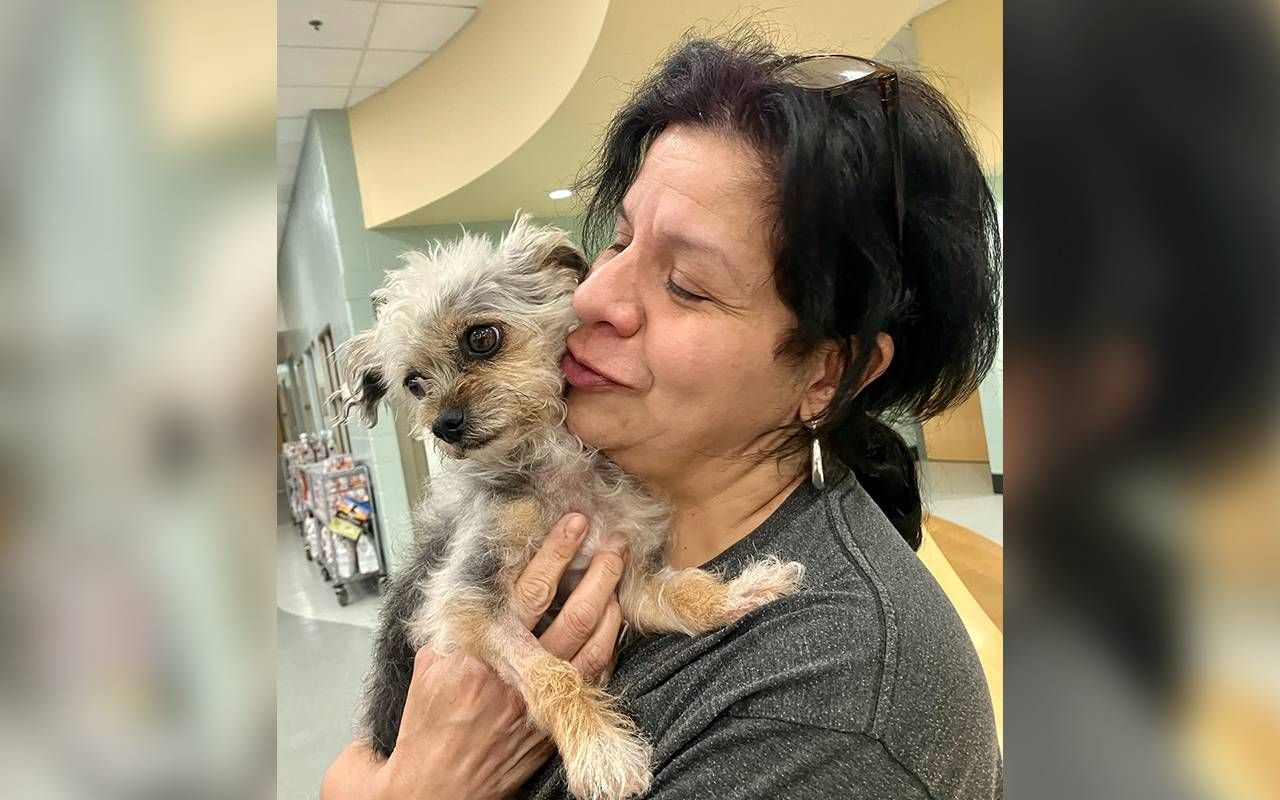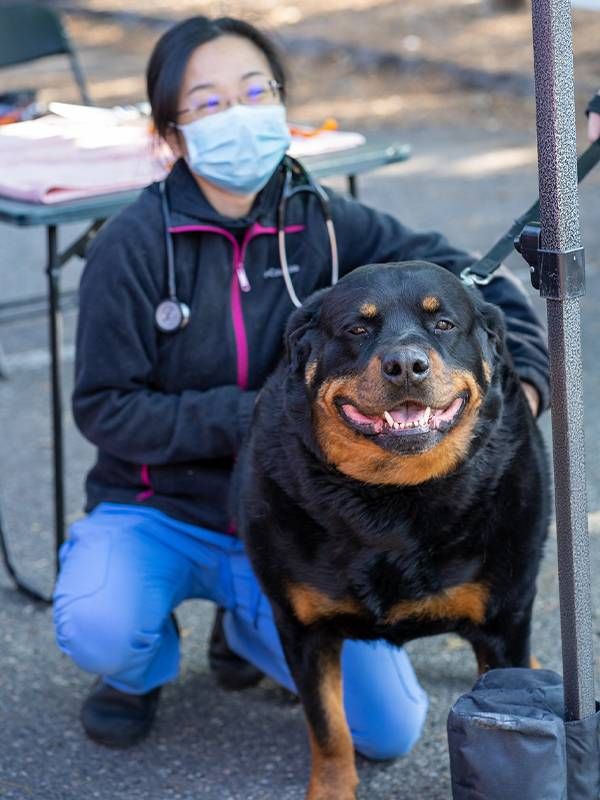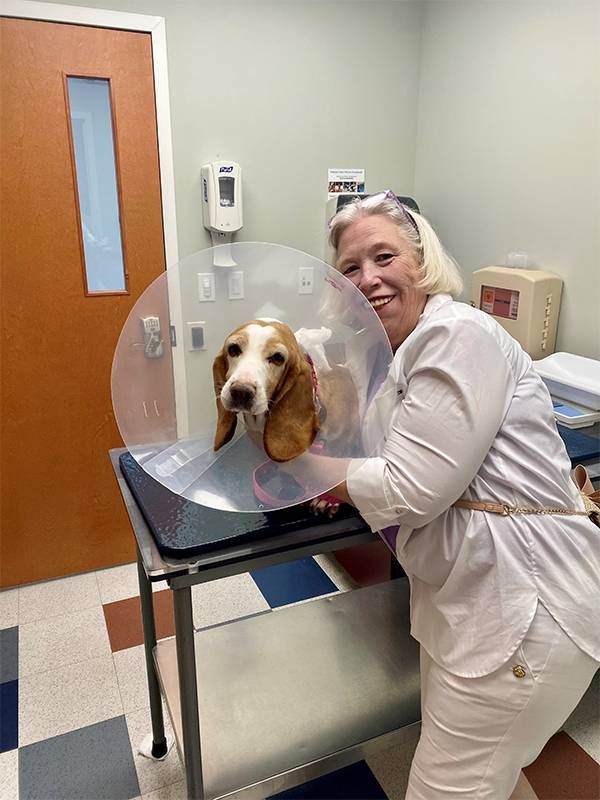How to Find Financial Help for Keeping Pets at Home
Pet care costs can pose challenges, but animal hospitals and nonprofits are increasingly offering assistance
Boston resident Veronica Fernandez considers her dog CeeCee a member of the family. She adopted the little mixed-breed dog 10 years ago to help one of her young daughters cope with anxiety brought on by the Boston Marathon bombing. The playful dog delights in cuddles, toys and belly rubs. She sleeps in bed with Fernandez and her husband every night.

So earlier this summer when CeeCee stopped eating and playing, Fernandez, 52, immediately brought her dog to a veterinary emergency room. Bloodwork revealed CeeCee's kidneys were in trouble. The little dog would need to be hospitalized at least one night — to the tune of $3,000, which Fernandez couldn't afford.
"What do you do? That's your family. That's like telling your kid, 'You can't go to the doctor,'" she recalled. "People are like, 'It's just a dog. It's just a cat.' But she's my baby."
"I'm getting teary eyed thinking back at it. She's very special to the family."
Fortunately, the hospital had a special fund for such cases provided by the nonprofit KodiakCare, which provides emergency funds to eight major nonprofit animal hospitals in the U.S.
After two nights, CeeCee pulled through and is now back to her cuddly, playful self. Fernandez is incredibly grateful to the team that saved her dog and the nonprofit that covered over $3,000 in medical bills.
"I'm getting teary eyed thinking back at it," she said. "She's very special to the family."
The economic turmoil of the past few years has left many families — like CeeCee's — struggling financially to give their pets the care they need, from veterinary treatments to pet food and other supplies. So animal hospitals, shelters, animal welfare organizations and other nonprofits are increasingly offering support to help keep pets with the families who love them.
Take KodiakCare. Retired Connecticut residents Glenn and Nancy Shapiro founded the nonprofit in 2020 in memory of their beloved dog, Kodiak, a Bernese mountain dog who let foster kittens crawl all over him.
The couple felt lucky to have enough money to pay for Kodiak's extensive veterinary bills over the years, and realized not everyone is so fortunate. Then they heard about a person crying in the lobby of an animal hospital because they couldn't afford surgery for their dog and were faced with euthanizing their pet – until a "Good Samaritan" who happened to be in the lobby stepped in and paid for the dog's treatment.
"Nancy and I were saying, 'What if we could virtually stand in the lobby and do that every time somebody was maybe having to lose their dog just because they don't make enough money?'" Glenn Shapiro, 57, said. "That made sense to us because we're huge animal lovers and we know how impactful they can be on people's lives."
By working with animal hospitals, their nonprofit has helped save 440 dogs.
The Benefits Pets Bring
While they've had some pushback about helping animals instead of a people-based cause, the Shapiros feel strongly that helping pets helps people.
"All these benefits that show the positive influence of pets on healthy aging point to the importance of programs and policies that keep older adults and their pets together."
They're right. Scientific research demonstrates that pets are beneficial at all stages in life – especially as we age, according to Steven Feldman, president of the nonprofit Human Animal Bond Research Institute (HABRI) in Washington, D.C.
"Studies show that dog and cat ownership can provide important forms of social and emotional support for older adults that instill an important sense of meaning and purpose, reduce loneliness, improve cognitive function, maintain physical function and overall quality of life," he noted.
Feldman added that by serving as a soothing presence and a source of motivation for activity and routine, pets can also facilitate behaviors that improve cognition, enhance coping with pain and reduce depression. "All these benefits that show the positive influence of pets on healthy aging point to the importance of programs and policies that keep older adults and their pets together," he said.
Providing Compassionate Care
"Compassion always" is the motto at the nonprofit Dumb Friends League, a Denver animal shelter founded in 1910. To help increase access to veterinary care for people who can't afford it, the nonprofit partnered with Colorado State University to open the Dumb Friends League Veterinary Hospital at CSU Spur in January of 2022.
Spur offers deeply discounted care for sick and injured dogs and cats, as well as low-cost spay/neuter, according to Jodi Buckman, CAWA (Certified Animal Welfare Administrator) and vice president of Community Services at the League.

"We appreciate that it's been a really hard time for families through the pandemic and the economic impact of the increased cost of everything, including veterinary care," she said. "We're deeply committed to helping provide care for pets who otherwise wouldn't get care."
For the hospital to be sustainable, it depends on pet owners to pay what they can. But when families need an even deeper discount, the team has a "conversation" with them to see if they qualify for an additional "compassion plan."
There's no paperwork involved because the nonprofit doesn't want it to be a barrier to care, Buckman noted.
The League also offers discounted vaccine clinics — both where people can drive up with their pets, as well as hosted in subsidized senior housing facilities, and offers free rideshare transportation if clients need a ride to Spur for services.
Last year, the nonprofit served 24,000 pets between the hospital, spay/neuter program and vaccine clinics.
Some groups serve distinct demographics. That's the case with Georgia-based nonprofit Ahimsa House, which supports people with pets escaping domestic violence.
"The top barrier to care is financial."
"Abusers use pets as a way to control victims and to keep them from leaving," said Executive Director Myra Rasnick. "No one wants to have to leave and make that choice between their safety and that of a pet."
Because less than 20% of domestic violence shelters can accommodate pets, Ahimsa House offers fostering and boarding for pets, and pays for vaccines, veterinary exams and any medical care pets need due to neglect or abuse.
The nonprofit also pays for rideshare trips from the home to the animal hospital and then a shelter or other temporary boarding, as well as pet deposits for clients moving into housing, and pet supplies like food, bowls, crates, leashes and collars.
Searching for Assistance
Across the country, nonprofits are working to offer help with pet care. Support can also come from churches that host pet food banks, animal hospitals that offer "pay over time" options without a hard credit check, or temporary boarding for pets of active members of the military, or people who are hospitalized.

It can be overwhelming to know where to start looking, so early in 2023 – after two years of development – the nonprofit Open Door Veterinary Collective launched the free online tool Pet Help Finder. Anyone can enter their zip code to search for over 5,000 providers offering "financially friendly pet services" in North America, including veterinary care, pet food and supplies, transportation and crisis housing.
The site is available in English and Spanish and is designed to support people with disabilities.
Heather Cammisa, CAWA, chief enterprise officer at Open Door Veterinary Collective, which works to remove barriers to veterinary care, said there is "absolutely" a growing push among veterinary professionals, animal shelters and animal welfare organizations to help keep pets in their homes.
She developed the Pet Help Finder tool after conducting research with Meals on Wheels during the pandemic that found 96.6% of homebound clients with pets agreed that having pets in their life made them feel less lonely, and nearly 1 in 3 reported going without necessities for themselves such as paying bills to try to provide for their pets.
"The top barrier to care is financial," Cammisa said. "That's why it's so important for us all to work together with social services to tap everyone's expertise to bring together great, efficient programs that stretch scarce dollars and help as many people as possible."
For More Information
To search for financially friendly pet services in your zip code (or to add one for free), visit: www.pethelpfinder.org
If you or someone you love is in danger, please contact the National Domestic Violence Hotline at 1-800-799-7233 or visit: TheHotline.org.

